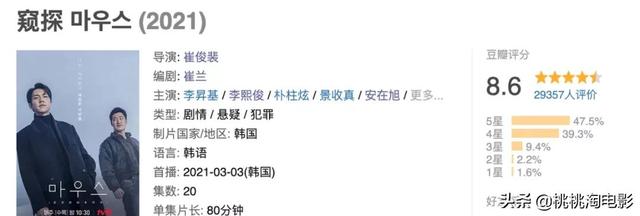We face some common obstacles that get in the way of our decision-making skills. Understanding and overcoming them is essential to breaking destructive decision-making patterns and getting to better outcomes.,我来为大家科普一下关于要做一个理性的人这句话是谁说的?下面希望有你要的答案,我们一起来看看吧!

要做一个理性的人这句话是谁说的
We face some common obstacles that get in the way of our decision-making skills. Understanding and overcoming them is essential to breaking destructive decision-making patterns and getting to better outcomes.
在我们做决定时,通常会面临一些障碍。理解并克服这些障碍有助于我们打破有害的决策模式,获得更好的结果。
Here are 5 common obstacles and how to deal with them.
以下是五种常见障碍以及相应的解决方案。
Obstacle 1: Putting Too Much Importance on Your “Anchor”
障碍一:太过看重“参照”
An anchor is when we place a disproportionate amount of importance on an initial piece of information or data.
参照是指我们过于看重初始信息或数据。
Let's say you are negotiating to buy a new house. For some, the anchor will be the list price. However, someone making strategicdecisions will look to the budget as the anchor.
假设你正在商谈购买一套新房。对于某些人来说,他的参照就是房子的定价。但是,做战略决策的人会将预算视为他的参照。
To overcome the distraction of anchors, you can try writing down the decision you need to make. Then, list the obstacles and challenges.
为了克服参照造成的分心,你可以尝试写下自己需要做出的决定。然后,列出你遇到的障碍和挑战。
Once you understand what's getting in your way, write a series of options, along with the pros and cons of each option.
当你明白是什么在阻碍你时,你可以写下可能的选择,以及每个选择的优缺点。
This process forces you to slow down and consider the situation from various angles instead of getting sidetracked by one potential option or piece of information.
这个过程迫使你慢下来并从各个角度考虑问题,而不是被某个可能的选择或信息所牵制。
Obstacle 2: Confirmation Bias
障碍二:确认偏误
Another persistent problem is one that is difficult to see in ourselves.
另一个难缠的问题是我们自己很难发现的。
Confirmation bias, in which we look for and interpret information in ways that support what we believe, can be influenced by a decision to be “right” or wishful thinking.
所谓确认偏误就是从支持自身观点的立场出发寻找和解释信息,可能是为了表明自己是“对的”,或是一厢情愿的想法。
Clues that confirmation bias may be an issue include getting information from the same sources, avoiding information that may hurt your psychological well-being, or “bend” facts to make them support your beliefs.
确认偏误可能导致问题,表现在从单一来源获取信息,避免可能引发心理不适的信息,或“歪曲”事实以使其支持自身观点。
Maybe you should try thinking about the problem in different ways, considering the opposite interpretation or solution than your initial inclination. Get information from multiple sources and be sure you carefully consider all aspects before you make a decision.
也许你应该尝试以不同的方式思考问题,考虑相反的解释或解决方案而不是你最初的意向。从多个来源获取信息,并确保在做出决定之前仔细考虑方方面面。
Obstacle 3: Group Think
障碍三:群体思维
Fear of rejection, embarrassment, or ridicule can lead to group think. Group think is when the team tends to gravitate toward one idea on a regular basis instead of challenging norms and coming up with new approaches.
害怕拒绝、尴尬或被人嘲笑会导致群体思维。群体思维是一个团队倾向于接受常规想法而不愿挑战常规并提出新方法。
It is a big deal, because what happens is if you're striving for innovation, group think will stymie innovation. It will prevent the big breakthroughs from happening.
这是一个大问题,因为如果你在努力创新,群体思维会阻碍你创新。它将阻碍重大突破的出现。
If you're trying to solve a problem or a challenge, it prevents different perspectives from being voiced and brought to the table. It shuts down creativity, and it even shuts down productivity.
如果你正在尝试解决问题或挑战,它会阻碍不同的观点表达。它抑制了创造力,甚至抑制了生产力。
Encourage yourself to challenge norms. Ask for others’ opinions, but never let them make the decision for you.
鼓励自己挑战常规。询问他人意见,但绝不让他人替你做决定。
Obstacle 4: Present Bias
障碍四:当前偏误
Present bias favors immediate rewards over those in the future. The problem with present bias is that it inhibits long-term strategy and forgoing long-term gains for short-term benefits. Overspending, lack of planning, and procrastination can all be signs of present bias.
当前偏误倾向于选择当前利益优于未来回报。当前偏误的问题在于它抑制了长期战略并且为了短期利益而放弃了长期利益。超支、缺乏计划和拖延症都可能是当前偏误的迹象。
If you tend to be an impulsive decision maker, impose a “cooling-off”period before you finalize big decisions. And learn to think about the future ramifications of your decisions—both positive and negative.
如果你经常做出冲动的决定,那么在你做出重大决定之前,要给自己一个“冷静下来”的阶段。学会思考你的决定所能带来的影响,无论好坏。
Get in touch with your ‘future self’ by frequently imagining your life 10 or more years from today or maybe even when you're retired. Think about your career or business similarly when faced with big decisions.
经常联想一下从今天起10年或更长时间以后甚至退休后的生活,与“将来的自己”保持联系。在面临重要决定时,务必把自己的职业生涯或事业考虑在内。
Obstacle 5: Personal Patterns
障碍五:个人模式
In addition to common challenges, gaining insight into your personal decision-making patterns can help you make better decision.
除了常见的挑战之外,深入了解你的个人决策模式可以帮助你做出更好的决定。
Depending on what your pattern is, where you get tripped up will be different for you.
个人模式不同,遇到障碍的地方也会因人而异。
Reflect on your own personal patterns and motivations in decision making. Look for areas where you may be particularly strong or where decisions haven't gone the way you had hoped.
反思自己的个人模式和决策动机。查看你可能特别有优势或者结果没有按照你希望的方式进行的地方。
Ego sometimes needs to be checked, to be able to defer to others to bring their specialties through. Assessment tools can also help, especially those that have been proven to be highly effective in pinpointing individual decision-making tendencies.
有时需要反省自我,以便能够遵从他人从事自己的专业。评估工具也可以提供帮助,尤其是那些已被证明在确定个人决策倾向方面非常有效的评估工具。
- 相关热点:
- 英语双语阅读
- 芝麻英文怎么说





